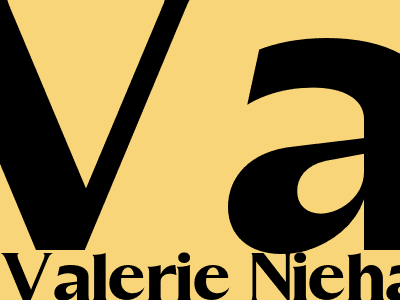How to Become a Successful Journalist Like Valerie Niehaus
An In-Depth Guide to Building a Thriving Career in Journalism
Written by an Experienced Journalist and Educator
Introduction
In an era defined by the proliferation of information and the rise of digital media, the role of journalists has become more critical than ever before. The ability to gather, analyze, and disseminate accurate and unbiased information is essential for a well-informed citizenry and a healthy democracy.
If you are passionate about storytelling, have a keen eye for detail, and a desire to make a difference in the world, then a career in journalism may be the perfect path for you. In this comprehensive guide, we will delve into the steps you need to take to become a successful journalist like Valerie Niehaus, an award-winning reporter known for her in-depth investigations and compelling narratives.
Education and Training
A strong educational foundation is essential for aspiring journalists. A bachelor's degree in journalism, communications, or a related field will provide you with a solid understanding of the principles of reporting, writing, and editing. Look for programs that offer a combination of classroom instruction, practical experience, and internships.
Consider pursuing a master's degree in journalism or a specialized field such as investigative reporting, data journalism, or international relations. Advanced degrees can enhance your knowledge, skills, and credibility. Additionally, attending workshops, seminars, and conferences can help you stay up-to-date with industry trends and best practices.
Developing Essential Skills
Successful journalists possess a diverse set of skills that enable them to excel in their profession. These include:
- Strong writing and editing skills: Journalists must be able to write clearly, concisely, and accurately. They should also be adept at editing their own work and the work of others.
- Excellent research and analytical skills: Journalists need to be able to gather and analyze information from a variety of sources, including interviews, documents, and databases.
- Interviewing techniques: Journalists must be able to conduct effective interviews to obtain information and build relationships with sources.
- Multimedia skills: In today's digital age, journalists need to be able to create and edit multimedia content, such as videos, podcasts, and infographics.
- Ethics and objectivity: Journalists must adhere to the highest ethical standards and maintain objectivity in their reporting. They should be committed to fairness, accuracy, and truthfulness.
Building Your Network
Networking is essential for journalists. Attend industry events, join professional organizations, and connect with other journalists, editors, and sources on social media. Building relationships can help you find job opportunities, learn about breaking news stories, and access valuable information.
Consider establishing mentorships with experienced journalists who can provide guidance and support as you navigate the field. Mentors can share their insights, offer advice, and help you develop your skills.
Choosing a Specialization
As you gain experience in journalism, you may want to consider specializing in a particular area, such as investigative reporting, political reporting, or environmental reporting. Specialization can enhance your expertise and make you a more valuable asset to potential employers.
To specialize, take courses, attend workshops, and read books and articles on your chosen topic. Seek out opportunities to write and report on stories related to your specialization. By focusing on a particular area, you can become a recognized expert in your field.
Finding a Job and Advancing Your Career
There are many different ways to find a job in journalism. You can apply directly to newspapers, magazines, and websites. You can also search for jobs on online job boards and network with other journalists.
Once you have landed a job, there are several things you can do to advance your career. Be proactive and take on new challenges. Seek out opportunities to write and report on important stories. Build relationships with editors and other journalists. And stay up-to-date with industry trends and best practices.
Conclusion
Becoming a successful journalist takes hard work, dedication, and a passion for storytelling. By following the steps outlined in this guide, you can build a thriving career in this dynamic and rewarding field.
Valerie Niehaus is an inspiration to aspiring journalists everywhere. Through her relentless pursuit of truth and her commitment to journalistic excellence, she has made a significant impact on the world. Her story is a reminder that with determination and hard work, it is possible to achieve your dreams and make a difference through the power of journalism.

تعليقات